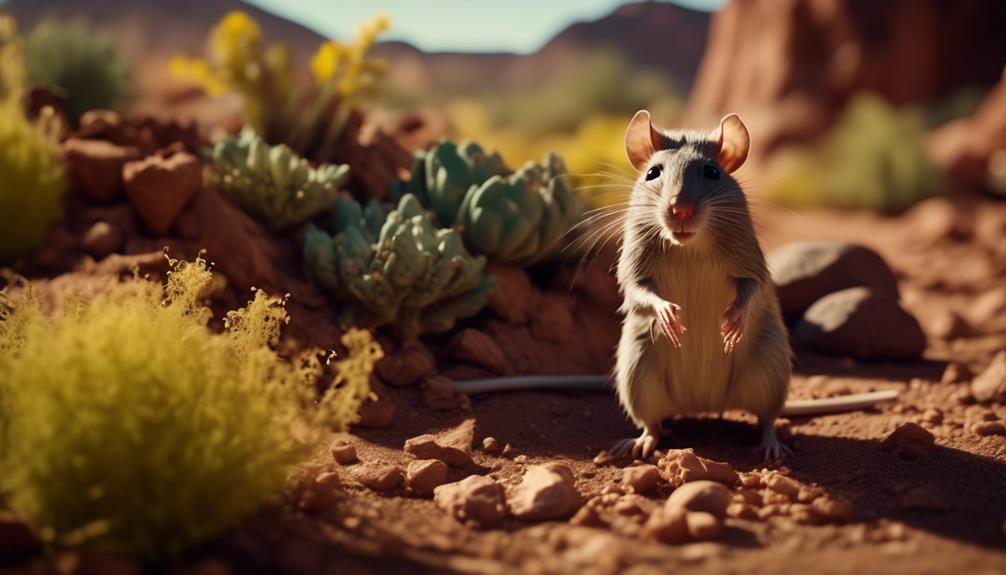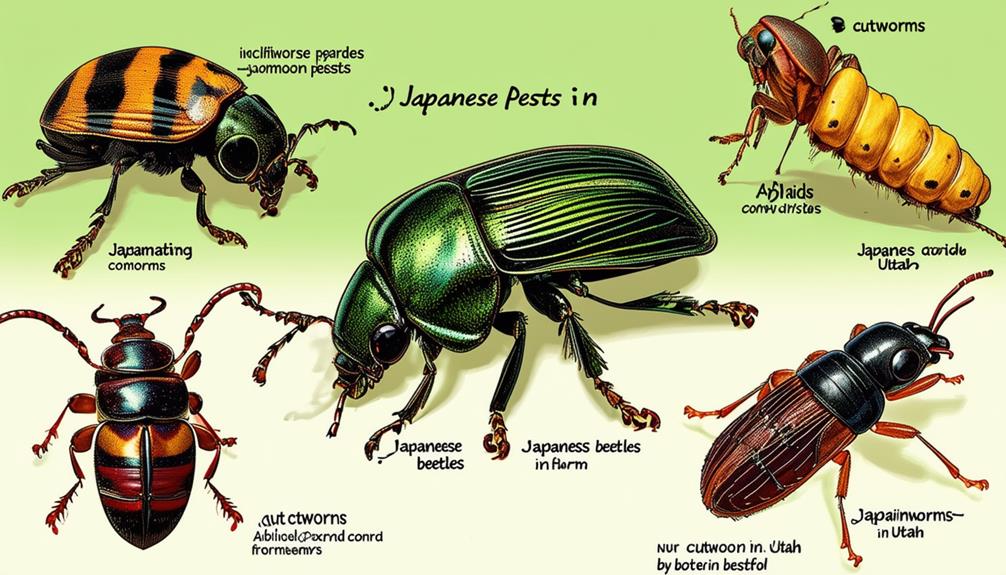Have you ever considered the intricate balance of nature that exists within St. George, Utah? While it may seem like a harmonious ecosystem on the surface, there is a hidden battle being waged against a common adversary: rodents.
The control measures implemented to combat these unwelcome pests may have unintended consequences that extend far beyond the eradication of mice and rats. In this discussion, we will explore the environmental impact of rodent control in St. George, Utah, and uncover the potential ramifications that go beyond what meets the eye.
So, let’s dive into this complex web of interactions and uncover the hidden truths that lie beneath the surface.
Key Takeaways
- Chemical pesticides used in rodent control can contaminate soil, water, and air in St. George, Utah, posing risks to the environment.
- Displacement of native predator species due to rodent control measures can disrupt predator-prey relationships and lead to cascading effects on the ecosystem.
- The use of rodenticides can contaminate soil and water sources, affecting fertility, disrupting the balance of microorganisms, and posing threats to aquatic organisms and drinking water sources.
- Inadvertent harm to beneficial insects, birds, and wildlife can occur as a result of rodent control methods, highlighting the need for integrated pest management techniques and non-toxic control methods to minimize harm to non-target species.
Chemical Pesticides and Their Effects
Chemical pesticides have a significant impact on the environment, necessitating a thorough examination of their effects in the context of rodent control in St. George, Utah. It’s important to consider alternatives to pesticides to mitigate their adverse effects.
Pesticides, although effective in controlling rodent populations, can have unintended consequences. They can contaminate soil, water, and air, leading to harmful effects on ecosystems. Additionally, these chemicals can persist in the environment for extended periods, posing a risk to wildlife and beneficial organisms.
Furthermore, the impact on human health can’t be overlooked. Exposure to pesticides can result in acute and chronic health issues, including respiratory problems, skin irritations, and even cancer.
Therefore, it’s crucial to explore and implement alternative methods of rodent control that are both effective and environmentally friendly, ensuring the protection of both ecosystems and human well-being.
Disruption of Natural Predator-Prey Relationships
Disruption of natural predator-prey relationships can have far-reaching ecological consequences. When rodent control measures are implemented in St. George, Utah, the displacement of native predator species can occur. These predators, such as owls, hawks, and snakes, rely on rodents as a primary food source. With a decrease in rodent populations due to control methods, the predators may struggle to find enough food to survive.
This disruption can lead to a decline in predator populations, which in turn can have cascading effects on the entire ecosystem. Additionally, the spread of diseases can occur when predator-prey relationships are disrupted. Without natural predators to keep rodent populations in check, diseases carried by rodents, such as hantavirus and leptospirosis, can become more prevalent and ultimately affect human and animal health.
It’s crucial to consider these ecological consequences when implementing rodent control methods, to ensure the preservation of natural predator-prey relationships and the overall health of the environment.
Contamination of Soil and Water Sources
The presence of rodent control measures in St. George, Utah can potentially lead to the contamination of soil and water sources. Rodenticides, such as anticoagulant rodenticides, are commonly used to control rodent populations. When these rodenticides are applied, there’s a risk of runoff and leaching into nearby soil and water sources.
This can result in soil pollution and water pollution, which can have detrimental effects on the environment and human health. Soil pollution occurs when the rodenticides infiltrate the soil, affecting its fertility and disrupting the balance of microorganisms. Water pollution occurs when the rodenticides enter streams, rivers, or groundwater, posing a threat to aquatic organisms and potentially contaminating drinking water sources.
It’s crucial to implement proper application techniques and guidelines to minimize the risk of contamination and protect the soil and water resources in St. George, Utah.
Harm to Non-Target Species
When considering the environmental impact of rodent control measures in St. George, Utah, it’s important to address the potential harm caused to non-target species.
While rodent control is necessary to minimize the spread of diseases and protect public health, it’s crucial to employ alternative methods that minimize harm to non-target species.
The use of chemical pesticides, for example, can inadvertently harm beneficial insects, birds, and other wildlife that play a vital role in maintaining ecological balance.
To mitigate these risks, integrated pest management techniques can be employed, which focus on prevention, monitoring, and the use of non-toxic control methods.
Long-Term Ecological Consequences
Over time, the ecological consequences of rodent control measures in St. George, Utah, can have significant and lasting impacts on the local ecosystem.
One of the key long-term ecological consequences is habitat destruction. Rodents play an important role in the ecosystem by creating burrows and tunnels, which provide shelter and nesting sites for other species. When rodent populations are controlled, their burrows are often destroyed, leading to habitat loss for other animals.
This can disrupt the natural balance of the ecosystem, causing certain species to decline or even disappear.
Another consequence is the potential for an ecosystem imbalance. Rodents are part of the food chain, serving as prey for predators such as snakes and birds of prey. When rodent populations are reduced, it can affect the predators that depend on them for food, leading to imbalances in the ecosystem.
Therefore, it’s crucial to carefully consider the long-term ecological consequences of rodent control measures to ensure the preservation of a healthy and balanced ecosystem in St. George, Utah.
Frequently Asked Questions
What Are Some Alternative Methods of Rodent Control That Do Not Involve the Use of Chemical Pesticides?
If you’re looking for natural alternatives, consider using traps, sonic deterrents, or even adopting a cat to control rodents. These organic solutions can effectively address the issue without the use of chemical pesticides.
How Can the Disruption of Natural Predator-Prey Relationships Affect the Overall Ecosystem?
When the natural predator-prey relationships are disrupted, it can have a significant impact on the overall ecosystem. This disruption can lead to a loss of ecological balance and can negatively affect the biodiversity and stability of the ecosystem.
Are There Any Regulations or Guidelines in Place to Prevent the Contamination of Soil and Water Sources During Rodent Control Activities?
Regulatory requirements and best practices for rodent control play a crucial role in preventing the contamination of soil and water sources. For instance, in a hypothetical scenario, strict guidelines ensure proper disposal of rodenticides to minimize environmental impact.
What Are Some Examples of Non-Target Species That May Be Harmed by Rodent Control Measures?
Non-target species, such as birds, reptiles, and small mammals, can be harmed by rodent control measures. This can have ecological consequences, disrupting the balance of the ecosystem and potentially leading to unintended consequences.
How Long Do the Long-Term Ecological Consequences of Rodent Control Activities Typically Last?
In considering the long-term effects of rodent control activities, it is important to assess the potential ecological consequences. Understanding the lasting impact on the environment is crucial for making informed decisions and serving the needs of others.




